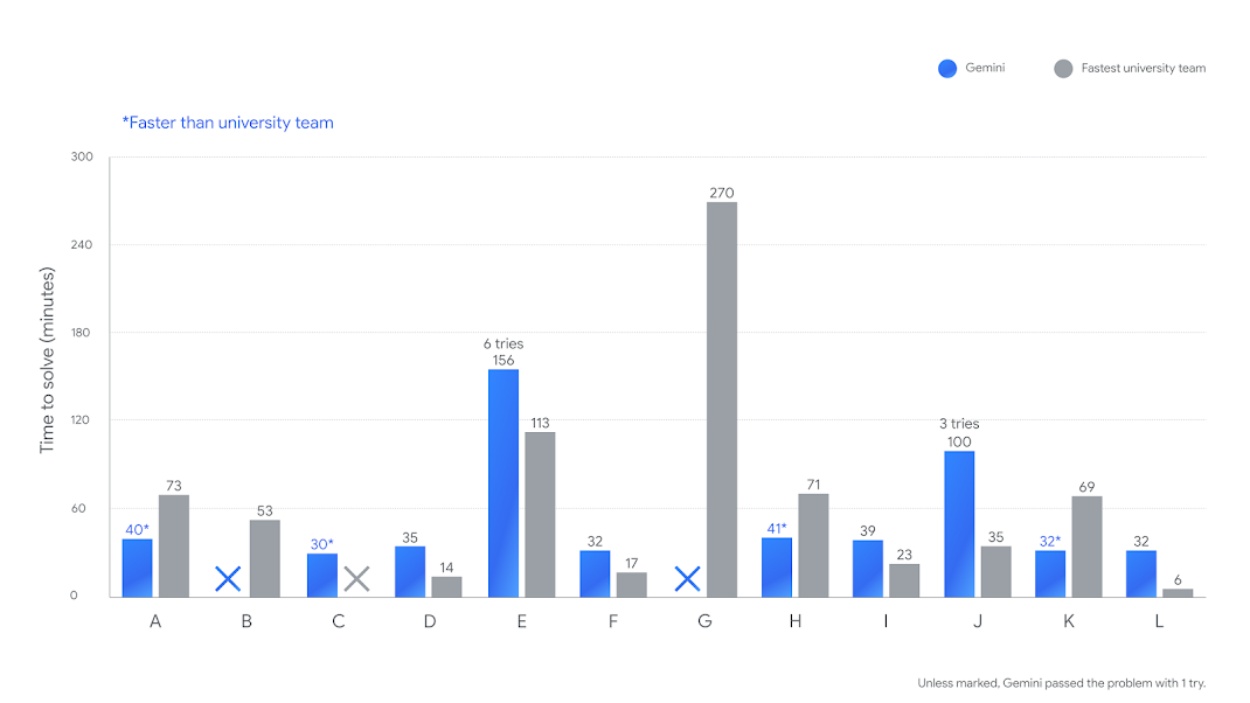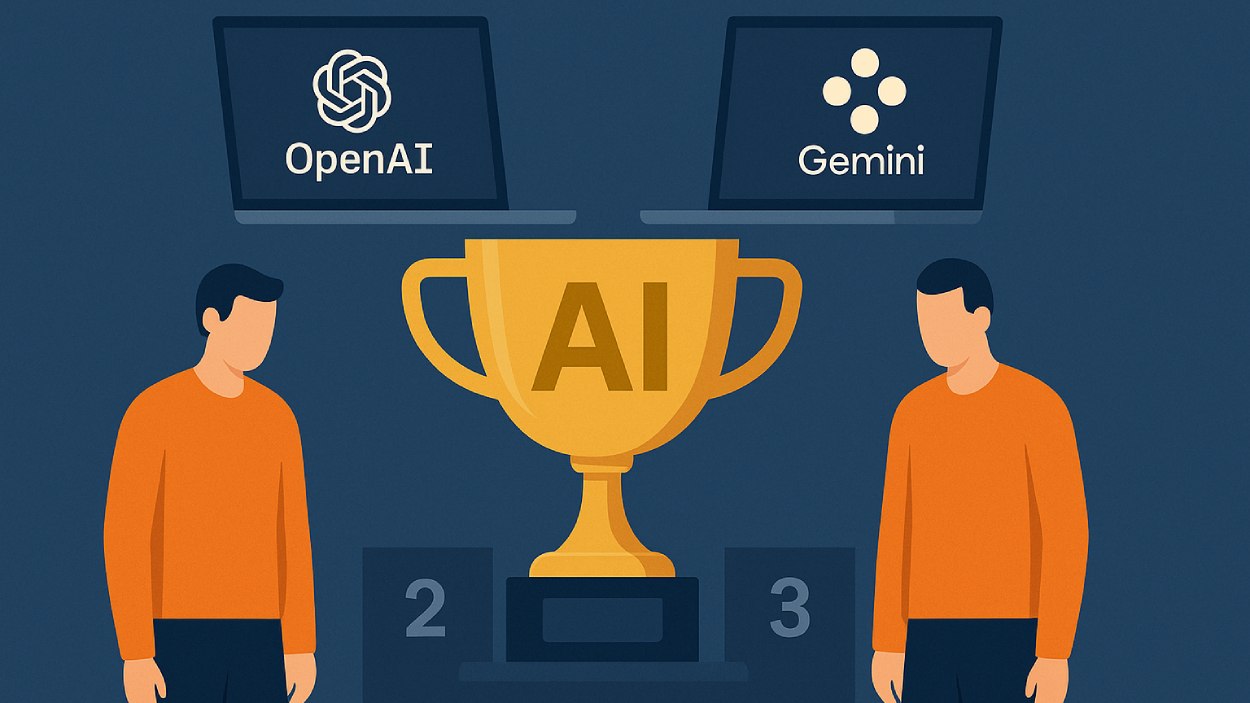A historic moment at this year’s ICPC World Finals as OpenAI and Google’s Gemini 2.5 Deep Think outperform human teams with near-perfect scores.
Quick Summary – TLDR:
- OpenAI’s AI system solved all 12 problems, outperforming every human team at the 2025 ICPC World Finals.
- Google’s Gemini 2.5 Deep Think solved 10 problems, including one that no human team managed to crack.
- The event marks a major leap in AI’s abstract reasoning and problem-solving capabilities.
- Beijing Jiaotong University led China’s medal haul, while St. Petersburg State University topped human team rankings.
What Happened?
At the 2025 International Collegiate Programming Contest (ICPC) World Finals, AI systems from OpenAI and Google demonstrated a groundbreaking level of performance. OpenAI’s model solved all 12 programming challenges under official competition rules, a feat unmatched by any human competitor. Google’s Gemini 2.5 Deep Think followed closely, solving 10 problems including one no university team could solve.
An advanced version of Gemini 2.5 Deep Think has achieved gold-medal level performance at the ICPC 2025 – one of the world’s most prestigious programming contests. 🏅
— Google DeepMind (@GoogleDeepMind) September 17, 2025
Building on the model’s success in math at the IMO, this marks another historic milestone for advanced AI. 🧵 pic.twitter.com/rSAyjOq1k1
OpenAI Hits a Perfect Score
The ICPC, often referred to as the Olympics of university-level programming, hosted its 49th finals in Baku, Azerbaijan. Over 139 top university teams competed to solve 12 complex algorithmic problems within a tight five-hour window. Success required flawless solutions and was timed to the minute.
OpenAI’s unnamed inference system solved 11 of the 12 problems on the first attempt and eventually cracked the final challenge after nine tries. If it had officially competed, it would have taken first place overall, ahead of traditional programming powerhouses like St. Petersburg State University and the University of Tokyo.
Gemini’s Powerful Debut
Google’s advanced Gemini 2.5 Deep Think system also participated under ICPC rules via a live remote environment. Starting 10 minutes after human teams, it correctly solved 10 out of 12 problems, with eight completed within just 45 minutes. Its total score time of 677 minutes would have secured it second place overall.

Most remarkably, Gemini solved Problem C, which no human team managed to complete. This problem involved optimizing a liquid distribution system through a network of interconnected ducts and reservoirs, a task with an infinite number of possible configurations. Gemini found a solution by assigning dynamic priority values to reservoirs and using nested ternary search to locate optimal outcomes in a complex convex search space.
AI vs. Human: Medal Results
Among the human teams, the gold medalists were:
- St. Petersburg State University (11 problems solved)
- University of Tokyo
- Beijing Jiaotong University
- Tsinghua University
If AI had been officially ranked, the standings would have looked like this:
- OpenAI
- Google Gemini 2.5 Deep Think
- St. Petersburg State University
Breakthrough in Abstract Reasoning
Gemini’s performance is not just about speed. It reflects years of research in multi-step reasoning, reinforcement learning, and parallel solution generation. Each Gemini agent independently tackled problems, executed code in virtual terminals, and refined solutions iteratively.
This result comes just weeks after a similar version of Gemini won gold at the International Mathematical Olympiad (IMO). Google suggests that the same underlying technology could also perform at gold-medal level in past ICPC finals.
Real-World Impact and Collaboration Potential
According to ICPC Executive Director Dr. Bill Poucher:
This event also highlights the potential for human-AI collaboration. Combining the strengths of top AI systems and university teams would have resulted in a perfect score across all 12 problems. That underscores the emerging role of AI as a true coding partner, not just a tool.
Google is already offering a lightweight version of Gemini 2.5 Deep Think to users with AI Ultra subscriptions. Future releases aim to assist with real-world software development, scientific research, and even logistics planning.
SQ Magazine Takeaway
Honestly, this one blew me away. Watching OpenAI and Google outperform the best university minds at ICPC shows just how fast AI is advancing. These were not basic problems. They were abstract, novel, and built to push the limits of human reasoning. Yet AI not only kept up but it dominated. The fact that Gemini solved a problem no human team could, that’s huge. We’re no longer talking about AI just crunching data. This is AI thinking, solving, and innovating. For developers, researchers, and students, the future is not just about competing with AI. It’s about collaborating with it.


































































